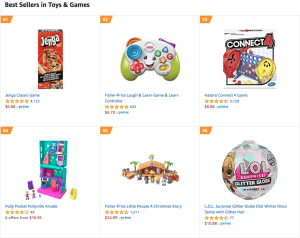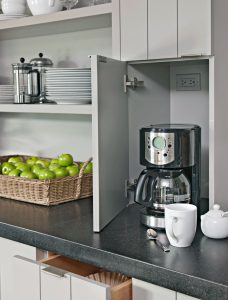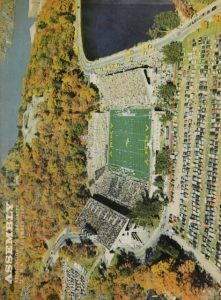Contents
- Feeding Tips for Dogs After Giving Birth
- Understanding the Nutritional Needs of a Nursing Dog
- Consulting with a Veterinarian
- Establishing a Balanced Diet
- Feeding Frequency and Portions
- Providing Fresh Water
- Avoiding Certain Foods
- Monitoring Mama Dog’s Weight
- Supplementing with Calcium
- Weaning Puppies and Adjusting the Diet
Are you a dog owner who recently witnessed the miraculous journey of your furry friend becoming a proud mother? If so, you may find yourself wondering what to feed your dog after giving birth. We understand that providing proper nutrition during this crucial period is vital for the health and well-being of both the mother and her precious puppies. In this article, we will provide you with essential feeding tips that will help your beloved pet recover and thrive after giving birth. Your dog’s postpartum nutrition is just as important as the care she received during pregnancy, so let’s make sure you have all the information you need to support her in this remarkable phase of motherhood.
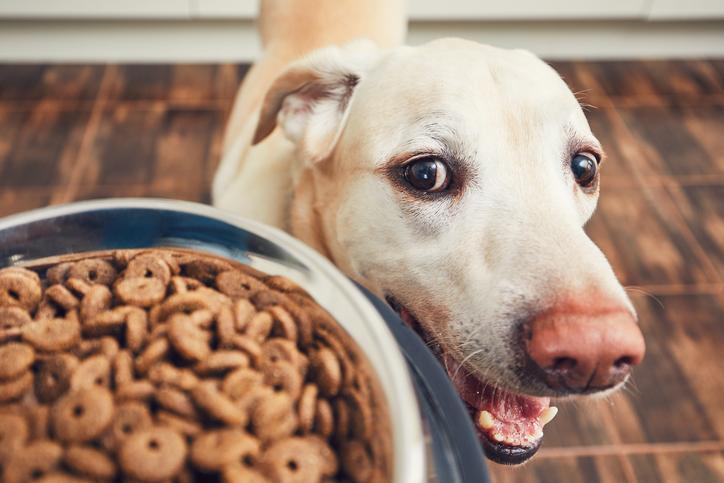
Feeding Tips for Dogs After Giving Birth
Congratulations on your dog’s new litter of adorable puppies! Taking care of a nursing dog requires special attention, especially when it comes to her nutritional needs. Providing the right diet is essential to ensure that both the mother and her puppies stay healthy and thrive during this important time. In this article, we will guide you through some feeding tips and guidelines to help you support your mama dog’s well-being and successful nursing journey.
Understanding the Nutritional Needs of a Nursing Dog
Before diving into the specifics of feeding, it’s important to have a good understanding of the nutritional needs of a nursing dog. When a dog is nursing, her body goes through significant changes, and she requires additional nutrients to support milk production, maintain her own health, and provide for her growing puppies.
Increased Energy Requirements
The energy requirements of a nursing dog increase significantly. Milk production is an energy-intensive process, and your dog needs extra calories to meet these demands. Make sure to provide her with a diet that is sufficiently high in calories to prevent weight loss and support her energy levels.
Need for High-Quality Protein
Protein is crucial for a nursing dog’s diet as it plays a vital role in milk production and tissue repair. Opt for high-quality protein sources that are easily digestible, such as lean meats, poultry, and fish. These protein sources will provide the essential amino acids necessary for your dog’s overall health and the growth of her puppies.
Optimal Fat Levels
Fat is another important component of a nursing dog’s diet. It is a concentrated source of energy and helps support lactation. Look for dog foods with moderate to high levels of healthy fats, such as omega-3 fatty acids, which have anti-inflammatory properties and can benefit both the mother and her puppies.
Essential Vitamins and Minerals
A well-balanced diet for your nursing dog should also include a variety of vitamins and minerals. These nutrients are essential for maintaining her health and supporting the development of her puppies. Consult with your veterinarian to ensure her diet provides adequate levels of vitamins A, D, E, and B complex, as well as minerals like calcium, phosphorus, and iron.

Consulting with a Veterinarian
When it comes to feeding a nursing dog, it is always recommended to consult with a veterinarian. They will provide professional guidance tailored to your dog’s specific needs and help you create a diet plan that supports her health and the optimal growth of her puppies.
Seeking Professional Guidance
Your veterinarian is the best person to provide you with detailed advice on the appropriate diet for your nursing dog. They will take into consideration factors such as her breed, size, age, and overall health to guide you in making the right choices. They can also address any concerns or questions you may have regarding her nutrition.
Customizing the Diet Plan
Every nursing dog is unique, and their dietary requirements may differ. Your veterinarian will help you customize a diet plan that suits your dog’s individual needs. This may involve adjusting portion sizes, selecting the best type of food, and incorporating any necessary supplements.
Addressing Any Special Requirements
Some nursing dogs may have special dietary considerations, such as allergies, food sensitivities, or underlying health conditions. Your veterinarian will assess these factors and advise you on the best approach to meet your dog’s nutritional needs while managing any specific requirements she may have.
Monitoring the Dog’s Health
Regular check-ups with your veterinarian are vital during the nursing stage. They will monitor your dog’s overall health, weight, and body condition, making adjustments to her diet if necessary. Staying in close communication with your vet will ensure that any issues are promptly addressed, and your dog receives the proper care she needs.
Establishing a Balanced Diet
A balanced diet is key to keeping your nursing dog healthy and supplying her puppies with the nutrients they need. Here are some tips to help you establish a well-rounded and nutritionally rich diet for your mama dog.
Combining Wet and Dry Food
Providing a mix of wet and dry food can offer variety to your dog’s diet while ensuring she receives all the necessary nutrients. Wet food can be especially beneficial as it contains higher moisture content, helping to keep your dog hydrated during this demanding time.
Selecting a High-Quality Dog Food
Choose a high-quality dog food specifically formulated for nursing or lactating dogs. Look for brands that use premium ingredients, avoid artificial additives or preservatives, and have a good balance of proteins, fats, and carbohydrates. Reading labels and ingredient lists can help you make an informed decision.
Mixing Different Protein Sources
To offer a diverse range of nutrients, incorporate various protein sources into your dog’s diet. Rotate between lean meats like chicken, turkey, and beef, along with fish such as salmon or whitefish. This variety will supply different amino acids and help prevent monotony in your dog’s meals.
Including Fiber-Rich Foods
Fiber is an important component of a balanced diet for a nursing dog. It aids in digestion, helps regulate bowel movements, and can contribute to a feeling of satisfaction after meals. Consider adding fiber-rich foods like cooked pumpkin, sweet potatoes, or green leafy vegetables to your dog’s meals.
Incorporating Organ Meat
Organ meats, such as liver or kidney, can be a valuable addition to your nursing dog’s diet. They are nutrient-dense, containing essential vitamins and minerals like iron, vitamin A, and vitamin B12. However, organ meats should be fed in moderation to avoid excessive vitamin A intake.
Opting for Grain-Free Options
While grains can be a part of a healthy diet for many dogs, some may have sensitivities or allergies to specific grains. If you suspect that your dog has these issues, consider grain-free dog food options that utilize alternative carbohydrate sources like sweet potatoes or peas. Ensure that the chosen grain-free option still meets all the necessary nutritional requirements for nursing dogs.
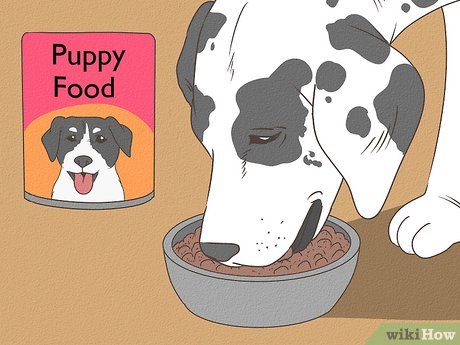
Feeding Frequency and Portions
Determining the right feeding frequency and portion size is crucial for a nursing dog. Here are some important guidelines to follow to ensure your dog receives the appropriate amount of food without overfeeding or underfeeding.
Allowing Frequent Access to Food
A lactating dog’s appetite may increase due to the high energy demands of nursing. To address this, provide her with free access to food and make sure her bowl is always filled. This allows her to eat smaller, more frequent meals throughout the day, matching her increased energy requirements.
Splitting Meals Into Multiple Portions
Instead of offering large meals, consider splitting your dog’s daily intake into smaller portions. This helps prevent overeating and reduces the chances of bloating or digestive issues. Aim for 3 to 4 meals per day, spaced evenly throughout the day.
Avoiding Overfeeding
While it’s important to provide your nursing dog with sufficient nutrition, it’s equally crucial to avoid overfeeding. Obesity can lead to health problems and may impact her ability to nurse effectively. Monitor her body condition and adjust the portion sizes if needed, keeping in mind that each dog may have different requirements.
Monitoring the Dog’s Appetite
Pay attention to your dog’s appetite and eating habits. If she shows a significant decrease in appetite or refuses to eat altogether, it may be a sign of an underlying issue. Contact your veterinarian if you notice any changes in her eating patterns to rule out any health concerns that may require attention.
Providing Fresh Water
Proper hydration is essential for your lactating dog’s overall health and milk production. Make sure she has constant access to fresh, clean water, and encourage her to drink regularly.
Ensuring Constant Access to Water
Place water bowls in easily accessible locations around the house and ensure they are always filled. Nursing dogs may require more water than usual due to increased milk production, so it’s important to have water available in different areas to prevent them from having to go too far for a drink.
Keeping Water Clean and Fresh
Regularly check the water bowls to ensure they are clean and free from any debris. Change the water at least once a day, or more frequently if needed, to keep it fresh and appealing to your dog. Dirty or stagnant water can discourage her from drinking, leading to potential dehydration.
Encouraging the Nursing Dog to Stay Hydrated
Some nursing dogs may be so occupied with their maternal duties that they forget to drink enough water. Encourage your dog to stay hydrated by placing water bowls near her resting area or offering cool, refreshing water during breaks from nursing. You can also try adding a small amount of low-sodium chicken broth to the water to make it more enticing.

Avoiding Certain Foods
While proper nutrition is crucial for a nursing dog, it’s equally important to be aware of foods that can be harmful to her health and potentially affect her milk production or the well-being of her puppies. Here are some foods to avoid feeding your nursing dog:
Chocolate and Caffeine
Keep all chocolate and caffeinated products away from your nursing dog. These contain substances like theobromine and caffeine, which are toxic to dogs and can lead to various health issues, including increased heart rate, restlessness, and even seizures.
Grapes and Raisins
Grapes and raisins are known to be toxic to dogs, and even small amounts can cause kidney damage. It’s essential to keep these fruits and any products containing them far away from your nursing dog’s reach.
Onions and Garlic
Onions and garlic, in any form, can be harmful to dogs and may even lead to the destruction of red blood cells. Avoid feeding your nursing dog any foods that contain onion or garlic, including products like gravies or sauces that may have these ingredients.
Raw or Undercooked Meats
Raw or undercooked meats can pose a risk of bacterial contamination, which can be harmful to both your nursing dog and her puppies. Always ensure that any meat provided to your dog is fully cooked to reduce the chances of bacterial infections.
Xylitol
Xylitol is a sweetener commonly found in sugar-free products, including gum or candies. Even small amounts of xylitol can cause a significant drop in blood sugar levels and can be toxic to dogs. Pay attention to ingredient labels and avoid any products that contain xylitol.
Monitoring Mama Dog’s Weight
Monitoring your nursing dog’s weight is essential for assessing her overall health and ensuring that she remains in an optimal condition to nurse her puppies effectively.
Recording Body Weight and Condition
Keep a record of your dog’s body weight and body condition throughout the nursing period. Regularly weigh her and monitor any changes. Additionally, assess her body condition by feeling her ribs and waistline. You should be able to feel her ribs with only a thin layer of fat covering them, and her waistline should be visible when viewed from above.
Adjusting the Diet According to Weight Changes
If your nursing dog starts to gain weight excessively, it may be an indication of overfeeding. Consult with your veterinarian to adjust her diet and portion sizes accordingly. Conversely, if she begins to lose weight or appears thin, her diet may need to be adjusted to provide more calories and nutrients.
Watching for Signs of Excessive Weight Gain or Loss
Monitoring your dog’s weight is crucial to identify potential health issues. Excessive weight gain can put stress on her joints and organs, while excessive weight loss may indicate a problem with milk production or underlying health concerns. Keep a watchful eye on her weight and promptly address any significant changes.
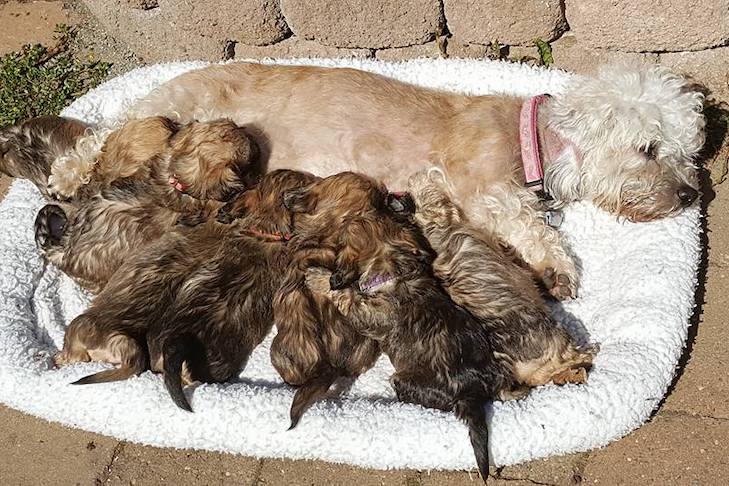
Supplementing with Calcium
Calcium is a vital mineral for nursing dogs, as it supports milk production, bone health, and muscle function. However, it’s important to provide calcium in the correct form and quantity.
Understanding the Importance of Calcium
Calcium is crucial for lactating dogs to prevent calcium depletion from their own bones, which can lead to health issues like hypocalcemia or eclampsia. It is essential for both the mother’s well-being and the proper development of her puppies.
Considering Calcium Supplements
While some commercial dog foods may contain sufficient levels of calcium, others may not. Consult with your veterinarian to determine if a calcium supplement is necessary and, if so, in what form and dosage. Calcium supplements should only be provided under veterinary guidance to avoid excessive intake, which can also be harmful.
Avoiding Excessive Calcium Intake
While calcium is important, excessive intake can lead to health problems as well. Too much calcium can interfere with the absorption of other essential minerals and may increase the risk of developing skeletal issues. It’s crucial to follow your veterinarian’s recommendations regarding calcium supplementation to ensure optimal health for your nursing dog.
Weaning Puppies and Adjusting the Diet
As the puppies grow, it becomes necessary to introduce them to solid foods and gradually wean them from their mother’s milk.
Gradual Introduction of Solid Foods
When the puppies are around three to four weeks old, you can start introducing them to solid foods alongside their mother’s milk. Begin by mixing a small amount of high-quality puppy food with warm water or puppy milk replacer. Allow them to explore the food, gradually increasing the quantity as they become more comfortable.
Choosing Age-Appropriate Puppy Food
Selecting the right puppy food is crucial to ensure the growing puppies receive the necessary nutrients for their development. Look for a high-quality puppy food that is formulated specifically for their age and size. These diets are designed to meet their increasing energy and nutrient requirements as they transition from nursing to solid food.
Phasing Out Nursing and Adjusting Portions
As the puppies become more proficient with solid foods, you can start reducing their reliance on their mother’s milk. Slowly decrease her nursing sessions and adjust the portion sizes of her meals accordingly. Monitor the puppies’ weight gain and consult with your veterinarian to ensure they are transitioning smoothly and receiving the appropriate nutrition.
Ensuring Proper Nutrition for Puppies
While the puppies are transitioning to solid foods, it’s crucial to provide them with a balanced and age-appropriate diet. Monitor their feeding habits, check their body condition regularly, and consult with your veterinarian if you have any concerns about their growth or nutritional needs. Ensuring proper nutrition during this critical stage will set them up for a healthy start in life.
Feeding a nursing dog after giving birth requires careful consideration to meet her increased nutritional requirements. Understanding the key aspects of her diet, consulting with a veterinarian, establishing a balanced diet, monitoring her weight, and adjusting the diet as needed will help ensure that your mama dog and her adorable puppies stay healthy and thrive. Remember, each dog is unique, so working closely with your veterinarian will ensure the best possible care for your nursing dog and her precious little ones.




